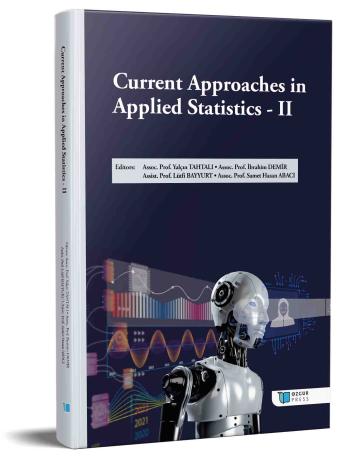
Assessment of Ankara University ERASMUS+ Programme Outgoing Students by Using Statistical Methodologies for the 2023-2024 Period
Şu kitabın bölümü:
Tahtalı,
Y.
&
Demir,
İ.
&
Bayyurt,
L.
&
Abacı,
S.
H.
(eds.)
2025.
Current Approaches in Applied Statistics II.
Özet
Data analysis has a crucial importance to realize student profiles within universities. The data should be analyzed with proper statistical methods and obtained results could be taken into consideration to make decision for supporting student activities and success. This study aims to realize the profile of Ankara University ERASMUS+ Programme Outgoing Students for the 2023-2024 period. Data set is obtained from the ERASMUS Office database and data preprocessing is achieved to organize the data. The well-organized data is analysed according to the categorical and numerical data type by using statistical explaratory data analysis, e.g. descriptive statistics, data visualization. Several parametric and non-parametric statistical tests are applied to the data set. In this context, chi square analysis and correspondence analysis are performed to understand whether there is a relationship between categorical data. One-way analysis of variance (ANOVA) is performed to understand whether there is a difference between groups containing numerical data. Additionaly, classification models were created to predict students' success and failure through machine learning classification algorithms, called Logistic Regression, k-Nearest Neighbors, Support Vector Machine and Random Forest. It can be said from the results that statistical methodologies help to identify patterns of the data to get knowledge for administrative processes at higher education in European level.

